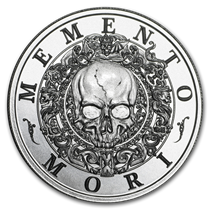Difference between revisions of "Mortal/CheatSheets"
| Line 43: | Line 43: | ||
}} | }} | ||
<div class='mw-collapsible-content'> | <div class='mw-collapsible-content'> | ||
| − | + | In an investigation, Clues represent hard evidence that can have a measurable impact on events.<br> | |
| + | Each investigation has a certain number of Clues needed to fully uncover the truth, set by the ST before investigation starts.<br> | ||
| + | === CLUE ELEMENTS === | ||
| + | Each Clue is composed of at least one ''element''. Each element provides a one-time +1 bonus to actions related to the investigation.<br> | ||
| + | Characters may use one element per roll by default, or as many in the same roll as their Investigation dots.<br> | ||
| + | The following circumstances grant a Clue bonus elements: | ||
| + | * Exceptional success | ||
| + | * Investigator has 4+ dots in Skill used | ||
| + | * the Investigative Aide Merit | ||
| + | === UNCOVERING CLUES === | ||
| + | ST and players establish characters' approach to finding their next Clue (in a research lab, archives, an enemy stronghold, etc).<br> | ||
| + | ST establishes the dice pool depending on approach, with a -1 to subsequent uses of a particular Skill after the first.<br> | ||
| + | * '''Dramatic Fail:''' Gain negative Condition from ST, Clue gains the Tainted tag | ||
| + | * '''Failure:''' Clue gains Incomplete tag | ||
| + | * '''Success:''' Clue gained with a single element, plus others as described in Clue Elements | ||
| + | * '''Exceptional Success:''' Clue gained with two elements, character gains a beneficial Condition<br> | ||
| + | === CONDITION TAGS === | ||
| + | '''Incomplete:''' Clue does not contribute to target needed to uncover the truth<br> | ||
| + | '''Tainted:''' Clue cancels the first success on any roll in the investigation, elements give -2 instead of +1 | ||
</div> | </div> | ||
</div> | </div> | ||
Revision as of 23:33, 26 April 2022
Instant: Takes one round of time to perform
Reflexive: Takes no effort or time, rolled when called for
Contested: When two go after one goal
Extended: When attempting a long and/or complex task
Resisted: When an action is resisted
(p. 69 Chronicles of Darkness)
When doing something that does not require a particular Skill, combine two Attributes together. Common uses include:
Remembering something specific (Intelligence + Composure)
Perception (Wits + Composure)
Meditation (Wits + Composure, extended, four successes)
Holding in your lunch (Resolve + Stamina)
Suffering a breaking point (Resolve + Composure)
Lifting something heavy (Strength + Stamina)
(p. 69 Chronicles of Darkness)
In an investigation, Clues represent hard evidence that can have a measurable impact on events.
Each investigation has a certain number of Clues needed to fully uncover the truth, set by the ST before investigation starts.
CLUE ELEMENTS
Each Clue is composed of at least one element. Each element provides a one-time +1 bonus to actions related to the investigation.
Characters may use one element per roll by default, or as many in the same roll as their Investigation dots.
The following circumstances grant a Clue bonus elements:
- Exceptional success
- Investigator has 4+ dots in Skill used
- the Investigative Aide Merit
UNCOVERING CLUES
ST and players establish characters' approach to finding their next Clue (in a research lab, archives, an enemy stronghold, etc).
ST establishes the dice pool depending on approach, with a -1 to subsequent uses of a particular Skill after the first.
- Dramatic Fail: Gain negative Condition from ST, Clue gains the Tainted tag
- Failure: Clue gains Incomplete tag
- Success: Clue gained with a single element, plus others as described in Clue Elements
- Exceptional Success: Clue gained with two elements, character gains a beneficial Condition
CONDITION TAGS
Incomplete: Clue does not contribute to target needed to uncover the truth
Tainted: Clue cancels the first success on any roll in the investigation, elements give -2 instead of +1
stuff
stuff
BREAKING POINTS
Breaking point questions:
- What is the worst thing your character has ever done?
- What is the worst thing your character could imagine themselves doing?
- What is the worst thing your character could imagine someone else doing?
- What (glimpse of the supernatural) has your character forgotten?
- What is the most traumatic thing to ever happen to your character?
A character can have any number of breaking points beyond these, simply include them in the note. They must be one of these three things:
- Committing an atrocity
- Witnessing a horror
- Being victimized
TRIGGERS
When suffering a breaking point, roll
Resolve + Composure.
For modifiers, see p. 74 "Chronicles of Darkness"
(pp. 30, 73 Chronicles of Darkness)
To build a dice pool, add together the following ratings on your sheet:
Attribute + Skill(.Specialty - optional) + Modifiers
Skills suffer a penalty to use if character has no dice in them, -3 for Mental skills, -1 for Physical/Social.
Specialties apply if relevant to the roll, ST decides. Specialties stack up to +3.
Modifiers apply from Conditions or as the ST decides, max out at +5/-5.
If modifiers reduce dice pools to 0, roll a chance die. Chance dice only succeed on a roll of 10, but can explode repeatedly on 10.
RESULTS
Success: Works as planned.
Failure: Complications. May take a beat to downgrade to dramatic failure.
Exceptional Success (5+): Better than planned, gain Inspired or Informed Condition related to roll.
Dramatic Failure (1 on chance die): More severe complications, take a beat.
(p. 68-69 Chronicles of Darkness)
stuff
stuff
Adapted for MUSH play
Turn: About three seconds
Scene: Up to three hours
Chapter: One day
Story: One week
stuff
